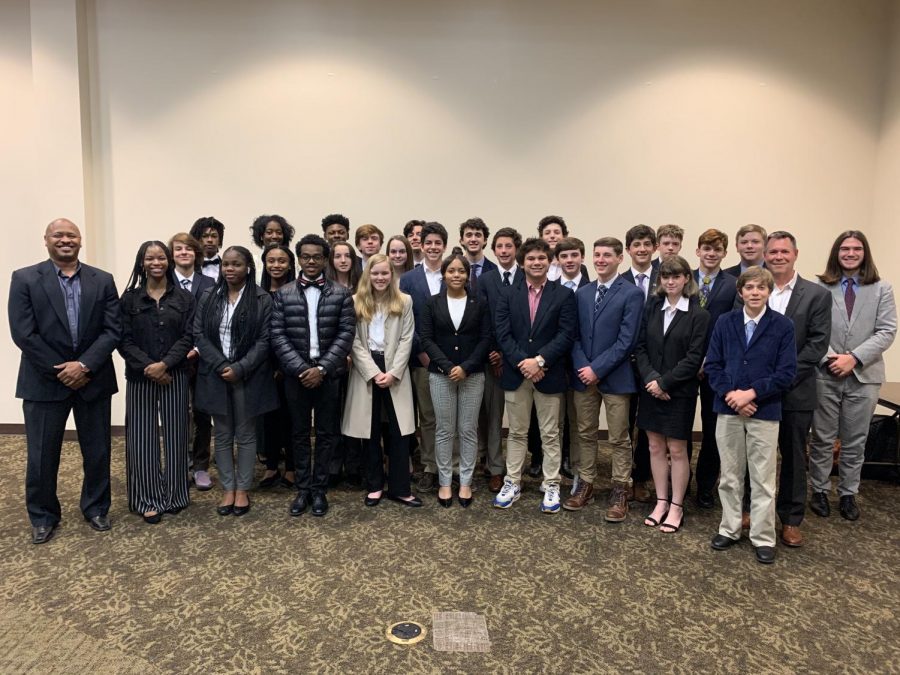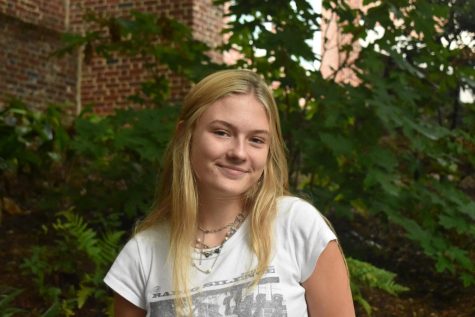DECA team sends members to national competition
The DECA team smiles for a picture at the 2019 regional competition.
March 26, 2021
DECA club is often overlooked but aims to develop leadership skills ranging from goal setting to project management.
This year, 10 DECA members qualified for nationals in April.
“This year, we have the most participants ever to qualify for nationals,” Burnice Davis, co-sponsor said. “When I first started, we only had one person to make nationals, and in seven years, that has turned into 10 people qualifying for nationals, which is a big accomplishment.”
Grady’s club is led by marketing teachers Davis and Dr. James Dunton. The club is open to all students who have participated in the marketing pathway for at least one year. After completing the marketing class, students can then compete and move up through competitions and conferences. The highest achievement through DECA is a first- place award for the member’s sector at an international competition.
“DECA gives you an opportunity to use the information that you learn in class outside the classroom,” Davis said. “Going to competitions, going in front of judges and attending leadership conferences gives students the opportunity to use the knowledge that they got in marketing class in real-world situations.”
Founded in 1946, DECA, or Distributive Education Clubs of America, is an organization that aims to prepare high school and college students for careers in marketing, finance, hospitality and management. DECA has a total of about 225,000 members worldwide, including 3,700 high school chapters and 215 college chapters. Grady’s chapter currently has 55 members.
Grady’s club focuses on teaching participants business and entrepreneurship skills, including financial literacy, budgeting, reinvestment and other business basics.
Competitions include team presentations and role-plays. During a team presentation, members present data, findings and possible solutions to business-related scenarios for a judge. During individual or partner role-plays, students present similar scenarios and their findings with real numbers and data.
Sophomore Mia Otoski is one of the 10 DECA who qualified for nationals.
“In the beginning of our meetings, we come together and collaborate to see where everyone is academic and socially, which I think brings us together and gives us a better understanding of everyone’s place in the club,” Otoski said. “If we don’t have a competition coming up, our meetings are usually geared to volunteering and going out and to help in the community.”
The competition season, known as the “high season,” lasts from August until January and picks back up in April for the national competition.
“During the high season, Mr. Davis works with everyone individually on what we can improve on and what will be useful for competing.” Otoski said. “All of his competition meetings have evidently helped, with sending [10] members to nationals this year.”
Junior Cassie Maggard also qualified for nationals and is “super invested” in the club.
“I joined DECA freshmen year because I was in the marking pathway and Mr. Davis really sold the idea of the club,” Maggard said. “At first, I was not really sure what it would be like, but now I am super invested and so glad that I joined.”
DECA members are confident that the skills they learned in the club will help them in their future pursuits.
“DECA has taught me so much about business, interviews, competition and leadership,” Maggard said. “Even though nationals are virtual this year, I can’t wait to see what events they have planned. This will be my first year going so I have no idea what it’s going to be like, but I’m excited.”







